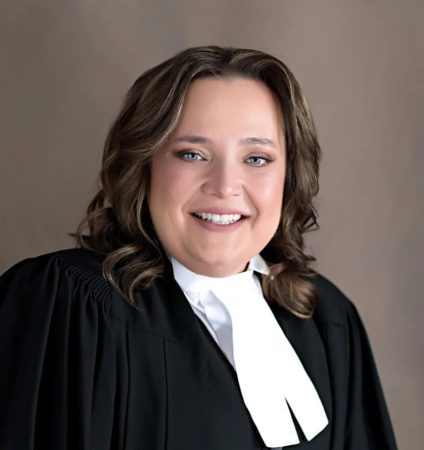Arbitration
Why arbitrate
Arbitration resolves matters efficiently without going to court; it also lets parties have done with their differences. Parties’ matters are heard with minimal delays, and a decision is rendered within twenty-eight days of final written submissions or the hearing, as the case may be.
The benefits
-
Wait less
-
Spend less
-
Simple rules
-
Lasting peace
When done right, arbitration greatly reduces the cost and duration of legal proceedings. We provide fixed-fee arbitration and work to keep dates open for short-notice written or oral proceedings.
Areas of specialization
We accept appointments as arbitrators pursuant to the Rules of Civil Procedure and the Arbitration Act. Our appointment may be as a reference from the Court. Parties may appoint an arbitrator by consent, by contract, or by reference from the Court (opposed or issued on consent).
-
Corporate and commercial
We accept references or appointments to adjudicate corporate and / or commercial disputes, especially internal governance disputes. We pride ourselves on streamlining the adjudicative process to ensure rapid, commercially reasonable outcomes. We further accept appointments to conduct interest arbitration (or to serve as compositeur amiable) for situations in which parties have agreed in principle, but need help settling details or revising agreements. Our fee starts at $1,000.00 + HST per party to adjudicate a dispute in writing; we accept appointments for oral adjudication starting at $1,000.00 +HST per party per four-hour block.
-
Contracts
We accept references and appointments to adjudicate contract disputes. We also accept appointments as named arbitrators in contractual arbitration clauses. Our fee starts at $1,000.00 + HST per party to adjudicate a dispute in writing; we accept appointments for oral adjudication starting at $1,000.00 +HST per party per four-hour block.
-
Real property
We accept references and appointments to adjudicate real property disputes. Such disputes may include claims to property, or a portion thereof, and torts related to property, such as mischief, trespass, or harassment. Our fee starts at $1,000.00 + HST per party to adjudicate a dispute in writing; we accept appointments for oral adjudication starting at $1,000.00 +HST per party per four-hour block.
-
Aviation
We work closely with members of the aviation industry and are familiar with its operations. We accept tariff-based appointments from airlines for air passenger disputes. We also accept appointments and references for disputes between aircraft owners, purchasers and sellers, and AMEs. These appointments are subject to our prevailing fees for categories of dispute.
-
Small claims
The small claims courts are very busy, and claims can drag for years. We accept appointments to arbitrate any small claims dispute pursuant to the Arbitration Act. Parties must consent to the appointment, at which time we use a simplified procedure. Our fee starts at $500.00 + HST per party for short and uncomplicated proceedings.
-
Civil procedure
We accept references to arbitration of interlocutory motions pursuant to rule 54 of the Rules of Civil Procedure. Such references are novel—few if any arbitrators currently accept them. They are designed to provide rapid but in-depth adjudication of motions, with recommendations made to judges that are formalized as decisions of the Court. Procedure arbitration applies to any matter to which the parties consent or for which a judge orders a reference. Our fee starts at $250.00 + HST per party for short written (opposed) motions.
The arbitrators

Adam Strömbergsson-DeNora
MA, JD

Dr. Rebecca Jaremko
PhD, LLM, MBA, LLB
The rules
Interpretation
(1) Arbitration is subject to the arbitration agreement made between the parties and the arbitrator, which must be made with regard for the arbitration legislation existing in the jurisdiction in which the proceeding is commenced.
(2) In applying these rules and the terms of the arbitration agreement, the arbitrator will make orders and give directions that are proportionate to the importance and complexity of the issues, and to the amount involved, in the proceeding.
(3) Where matters are not provided for in these rules, the practice will be determined by analogy to them.
(4) The arbitrator has the exclusive authority to interpret any word or provision of the rules or the arbitration agreement.
(5) Either party may request an interpretation from the arbitrator.
Commencement of proceeding
An arbitral proceeding commences when the arbitration agreement is signed by the parties and the arbitrator.
Official languages
The languages of arbitration are English and French, and either may be used interchangeably during a proceeding provided that both parties can understand each other.
Method of correspondence
All correspondence connected to the proceeding, including correspondence that delivers documents to the parties and the arbitrator, must be sent using electronic mail.
Arbitrator’s powers
(1) The arbitrator has the power necessary to efficiently and impartially conclude the proceeding.
(2) Without limiting the general power provided in sub-rule (1), the arbitrator has power to
- adjourn the proceeding from time to time;
- order the inspection of documents, exhibits, or other property;
- order the recording or transcription of any part of an oral hearing;
- extend or abridge any period of time required by these rules or by a previous interim order;
- make interim orders that do not deal with the substance of the dispute;
- request further statements clarifying issues in dispute; and
- request court assistance in taking evidence.
Interlocutory orders
Timeline for proceeding
(1) The arbitrator establishes a timeline for the conduct of the proceeding after consulting with the parties.
Requirements of timeline
(2) Unless otherwise ordered, the proceeding timeline must include:
- the delivery of a statement of claim;
- the delivery of a statement of defense and, where necessary, any counterclaim;
- the production of evidence; and
- the delivery of an agreed statement of facts.
Written proceeding
(1) The arbitration is conducted on the basis of written submissions and evidence.
(2) An oral hearing may be ordered at a party’s request.
(3) The arbitrator’s order for an oral hearing must amend the timeline for the conduct of the proceeding to specify the hearing’s date, time, and location.
Interim decisions
The arbitrator makes interim decisions on his own initiative or at a party’s request after receiving arguments from the parties.
Pleadings
(1) A statement of claim must set out:
- the facts supporting the claim;
- the grounds, including applicable principles of law and equity, that support the claim;
- the points in issue; and
- the relief or remedy that the claimant is seeking.
(2) A statement of defence must include:
- the facts supporting the defense;
- the grounds, including applicable principles of law and equity, that support the defense;
- the points in issue; and
- the relief or remedy that the defendant is seeking.
(3) When necessary, a counterclaim is initiated by including the information required for a statement of claim with respect to the counterclaim in the statement of defense.
(4) A statement defined in this section must be accompanied by access to all documents referred to in the statement.
Evidence
Agreed statement of facts
(1) Unless otherwise instructed, the parties must produce a joint statement of facts that neither of them dispute.
(2) After submitting the joint statement required by sub-rule (1), each party must prepare and file a list detailing the documents and other evidence
- that are in the party’s possession, control or power and that the party does not object to producing;
- that are or were in the party’s possession, control or power and for which the party claims privilege, and the grounds for the claim; and
- that were formerly in the party’s possession, control or power, but are no longer in the party’s possession, control or power, whether or not privilege is claimed for them, together with a statement of when and how the party lost possession or control of or power over them and their present location.
Production of evidence
As soon as practicable after the documents required by rule 10 are received, the arbitrator will request the production of any documents evidence that he considers material to establish the facts of the case, and the parties must produce such documents or evidence without delay.
Admissible evidence at the arbitrator’s discretion
(1) The arbitrator may accept oral, written, or any other type of evidence as the arbitrator in his discretion considers proper, whether admissible in a court of law or not.
(2) The arbitrator may, in the presence of the parties or their representatives, inspect any documents or real or personal property connected with the proceeding.
Request for production of evidence
(1) A party may request an order for the production of evidence from another party by showing to the arbitrator that the evidence is
- not in the control or possession of the requesting party;
- relevant to the matter before the arbitrator;
- not included in the list produced by the other party pursuant to rule 10(2); and
- assumed to be in the control or possession of the disclosing party.
(2) The arbitrator will deny production where he ascertains that the requested evidence is
- missing particulars such that the precise nature of the evidence is inascertainable;
- protected from production by a recognized category of privilege; or
- lost or destroyed.
(3) Nothing in this section restricts the arbitrator’s ability to deny production where such production would be disproportionate to the importance and complexity of the issues, and to the amout involved, in the proceeding.
End of proceeding
Close of proceedings
The arbitrator closes proceedings when the timeline created by rule 6 ends.
Decision
The arbitrator renders a final decision in writing within 28 days of the close of proceedings.
Functus officio
The arbitrator loses jurisdiction if one of the following events occurs:
- when the matter is settled;
- when the matter is abandoned;
- 30 days after a final decision is rendered in the matter; or
- the matter is otherwise concluded.